Tanker Carrying Iranian Oil Caught Fire Near China’s Shores
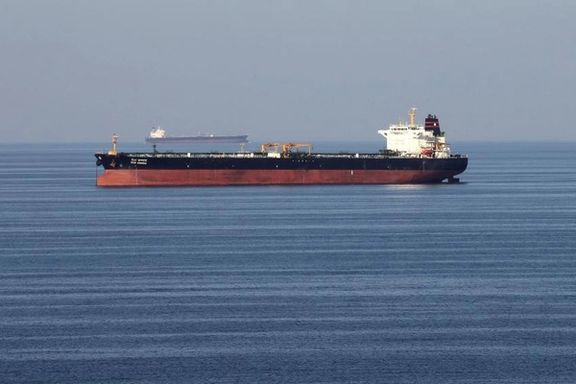
A tanker carrying half a million barrels of oil originating in Iran caught fire near China’s shores on Friday but the crew controlled the blaze.

A tanker carrying half a million barrels of oil originating in Iran caught fire near China’s shores on Friday but the crew controlled the blaze.
One day after the incident, Iran’s official IRNA news agency denied there was any link between the country and the oil tanker.
The IRNA report tried to use vague wording in its denial, suggesting that the cargo had been sold by Iran to an intermediary for delivery to a final customer, saying, “IRNA has learned from informed sources that this oil tanker does not belong to Iran and the only possibility is that its cargo belongs to one of Iran’s customers.”
Tanker tracking firm TankerTrackers confirmed the news in a tweet on Saturday, saying that “an old uninsured foreign-flagged tanker carrying half a million barrels of Iranian oil caught fire in the Far East”.
TankerTrackers added that they informed clients of the vessel’s identity and location.
According to reports, Iran normally transfers oil to different tankers in the sea to get round US sanctions since 2018 and send oil to China.
Fars news agency affiliated with the Revolutionary Guard said earlier in February that Iran’s oil export income grew by 494 percent in the first 5 months of the Raisi administration.
Earlier in January, a report detailed Iran’s large diesel smuggling network, revealing the role of the Revolutionary Guard and private shipping companies in the illicit trade.
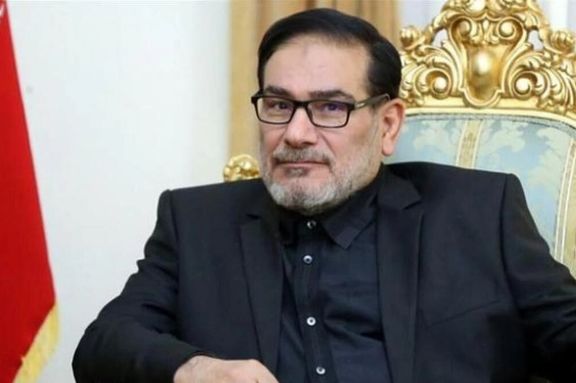
A cargo ship reportedly belonging to the sons of Iran's top security official Ali Shamkhani has been impounded in one of India’s ports.
The container vessel, named Kabul, belongs to the Admiral Shipping Company that Iranian media said is owned by Hassan and Hossein Shamkhani, the sons of the secretary of Iran’s Supreme National Security Council.
ILNA news agency reported on Friday that an Indian court has ordered the seizure of the ship and cargos originating or destined to Iran about 10 days ago.
The container ship is impounded on charges of possessing false documents, and has been anchored at Kandla, officially Deendayal Port -- a seaport and town in Kutch district of Gujarat state in Western India -- for 10 days ago.
According to Marine Traffic, KABUL is a container ship that was built in 2001 and is sailing under the flag of Saint Kitts and Nevis.
In recent years, the economic activities of Shamkhani’s family, including his brother and son-in-law, have been widely criticized and made headlines in Iran. Shamkhani was an admiral in Iran’s navy and a former IRGC commander.
He has recently been an outspoken critic of the Vienna talks to revive the Iran nuclear deal. After news about the impounded ship broke, critics quipped that continuation of United States’ sanctions are apparently good for Shamkhani family’s business interests.
This week, the publication of an audio recording implicated top commanders of the Revolutionary Guards in a massive corruption scheme in mid-2010s.
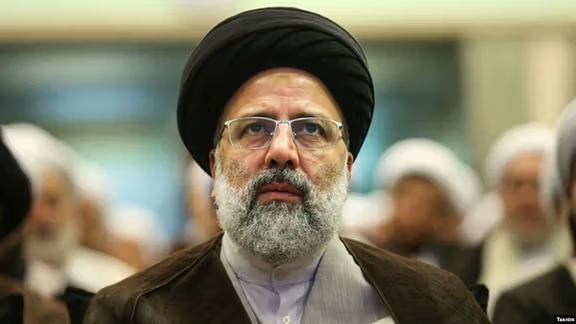
Nine human rights organizations have called on world powers negotiating with Iran in Vienna “not to lift human rights sanctions on the Islamic Republic of Iran.”
The group, including the Netherlands-based Center for Human Rights in Iran, issued a statement Friday told world power trying to revive the 2015 Iran nuclear deal they should be “maintaining” sanctions against Iran’s President Ebrahim Raisi.
Raisi was designated by the United States in 2019under an executive order signed by President Donald Trump allowing sanctions against anyone linked to the office of Iran Supreme Leader Ali Khamenei. The rights’ groups’ statement attributed Raisi’s listing to his role 31 years earlier in the 1988 prison executions, which the US Treasury cited in its press release announcing the designation.
Iran, backed by other participants, has argued that talks in Vienna should stick to the original logic of the 2015 deal, the JCPOA (Joint Comprehensive Plan of Action), in isolating the nuclear from other issues.
The rights groups statement said US “human rights sanctions” were imposed due to “the Iranian government’s egregious rights violations and abuses,” and that Raisi had “personally participated in ‘Death Commissions’” in 1988.
Hadi Ghaemi, executive director of the Center for Human Rights in Iran, said: “We cannot sacrifice human rights at the mantle of the nuclear negotiations with the Islamic Republic.”
as/ms
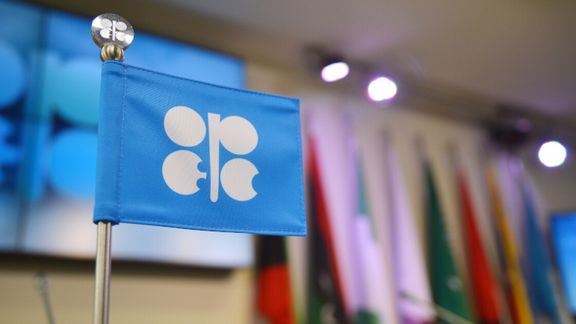
OPEC and its oil exporting allies will integrate Iran into their oil supply accord should a nuclear agreement be reached in Vienna and US sanctions lifted.
Quoting sources close to the group the report said OPEC+ seeks to avoid market share competition that could hit prices.
A successful outcome to the talks will lift United States’ sanctions on Iran's exports, according to the International Energy Agency, potentially bringing 1.3 million barrels per day (bpd) of Iranian oil back into the market. That could ease tight global supply and take some heat out of a rally that has taken benchmark prices to just a few dollars short of $100 a barrel.
Iran has been under full US oil sanctions since May 2019, and it was under partial sanctions from mid-2018. Its finances and the economy have suffered gravely as a result, and it is eager to sell as much crude as possible once sanctions are lifted.
The sanctions have also made Iran exempt from the existing export limit deal between the Organization of the Petroleum Exporting Countries and allies, known as OPEC+. While that exemption allows Iran to boost output, OPEC+ would eventually seek to bring Iran into the accord, sources said.
"It is very likely OPEC will adjust Iran into the deal, as there is no other option," an OPEC+ source told Reuters, who added that an agreement on reviving the nuclear accord looked close.
A source familiar with Iranian thinking said Iran would first seek to restore its lost output, but would likely, after talks with OPEC+, agree to a quota. Iran is one of the five founding members of OPEC.
Iranian officials are trying to restore they market share with previous customers like South Korea, Japan and India. Contacts and talks have already begun to coordinate post-sanction shipments.
Iran is pumping about 2.5 million bpd, some 1.3 million bpd less than in 2018 when former US President Donald Trump withdrew the United States from the nuclear accord and re-imposed sanctions, drastically cutting Tehran's oil income.
"With the lifting of sanctions, Iran will increase its oil production according to its facilities, capabilities and interests, to compensate for its lost oil revenues," the source familiar with Iranian thinking said.
"In my opinion, OPEC+ will set a quota for Iran's oil production but will apply it gradually, and Iran will accept the quota with some bargaining to show its support for OPEC."
'OPTIMISTIC' ON IRAN ISSUE
OPEC Secretary General Mohammad Barkindo, asked if OPEC+ would work out a new supply agreement that included Iran, said the group's track record gave grounds for confidence.
"Having survived the last five years since the establishment of the historic partnership between OPEC and non-OPEC that helped us to navigate through two oil cycles, we have every reason to remain reasonably optimistic going forward," he told Reuters.
OPEC+ is gradually boosting oil output after making record cuts in 2020 when demand collapsed due to the pandemic. But it has failed to hit its target because some producers did not make the investment or do the maintenance needed on oilfields during the pandemic to keep those facilities ready to increase output quickly.
For the United States, it would make sense to lift the sanctions on Iran to help lower prices given the domestic pressure the administration of President Joe Biden is facing due to rising inflation. The United States may also be considering that any output from Iran would ease the impact on global oil markets of any conflict between Russia and the Ukraine, a source familiar with Russian oil thinking said.
"The US will surely lift the sanction from Iran as soon as they decide to put more pressure on Russia given the current tensions over Ukraine," the source said. "Iranian oil will cool oil prices."
Reporting by Reuters
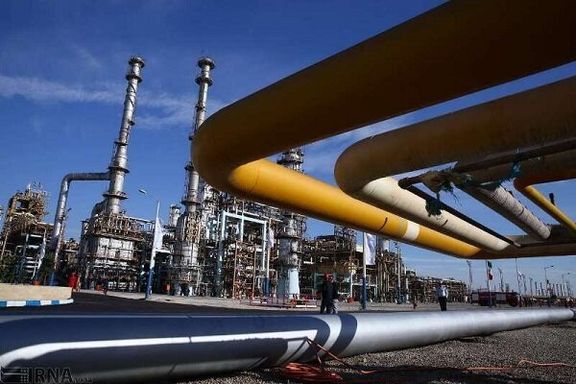
An oil refiner from India has started negotiations with the Islamic Republic to resume crude imports as soon as the nuclear deal is finalized.
Reuters cited an Indian refining source on Thursday that the Indian company is in talks with Iran for sourcing its oil, but the sources declined to be identified due to sensitivity of the matter.
India, which used to be Iran's No. 2 customer, halted oil imports in 2019 after former US President Donald Trump withdrew from the nuclear deal and re-imposed sanctions on Tehran's oil exports.
According to the unnamed source, New Delhi is waiting for more clarity on the nuclear deal, which apparently is close to tangible results.
A new deal can potentially pave the way for more oil supplies on global markets and soften prices about $5-10 a barrel, because Iran can contribute five percent to the world’s crude volume.
Earlier on Thursday, Japanese oil and energy corporation ENEOS announced its readiness to resume oil imports within two to three months of any revival of the 2015 Iran nuclear deal.
Tsutomu Sugimori, chairman of Japan’s largest refiner, said Thursday that ENEOS would not be able to resume Iranian imports immediately as it needed to set up insurance and arrange shipping. He called a two to three-month period a “possibility.”
Also, in preparation for the possible easing of US sanctions, Iran and South Korea, another major Iranian oil customer before 2018-19, opened detailed talks on freeing Tehran's money frozen by Korean banks fearful of punitive US measures.
as/ms
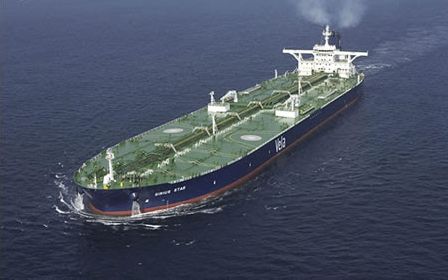
Japanese oil and energy corporation ENEOS has announced its readiness to resume Iranian oil imports within two to three months of any revival of the 2015 Iran nuclear deal.
Tsutomu Sugimori, chairman of Japan’s largest refiner, said Thursday that ENEOS would not be able to resume Iranian imports immediately as it needed to set up insurance and arrange shipping. He called a two to three-month period a “possibility.”
Japan suspended Iran oil imports in 2019, as the expiry of a limited United States sanctions waiver raised the threat of US punitive action against Japan for buying Iranian oil. Sugimori Thursday reflected his company’s interest in Iranian oil, which is suitable for refining and likely to be competitive as global prices rise.
"Once reaching agreement, [Iranian oil] will be a choice for our crude oil procurements, and that's when we start our consideration,” he said. "Without the lifting [of the US threat to penalise the company], there will be no deal [to resume imports] because the current sanctions are weighed heavily…”
Sugimori suggested that the easing of US ‘maximum pressure sanctions’ would bring an extra 2 million barrels of oil a day onto the world market.
Also in preparation for the possible easing of US sanctions, Iran and South Korea, another major Iranian oil customer before 2018-19, opened detailed talks on freeing Tehran's money frozen by Korean banks fearful of punitive US measures.